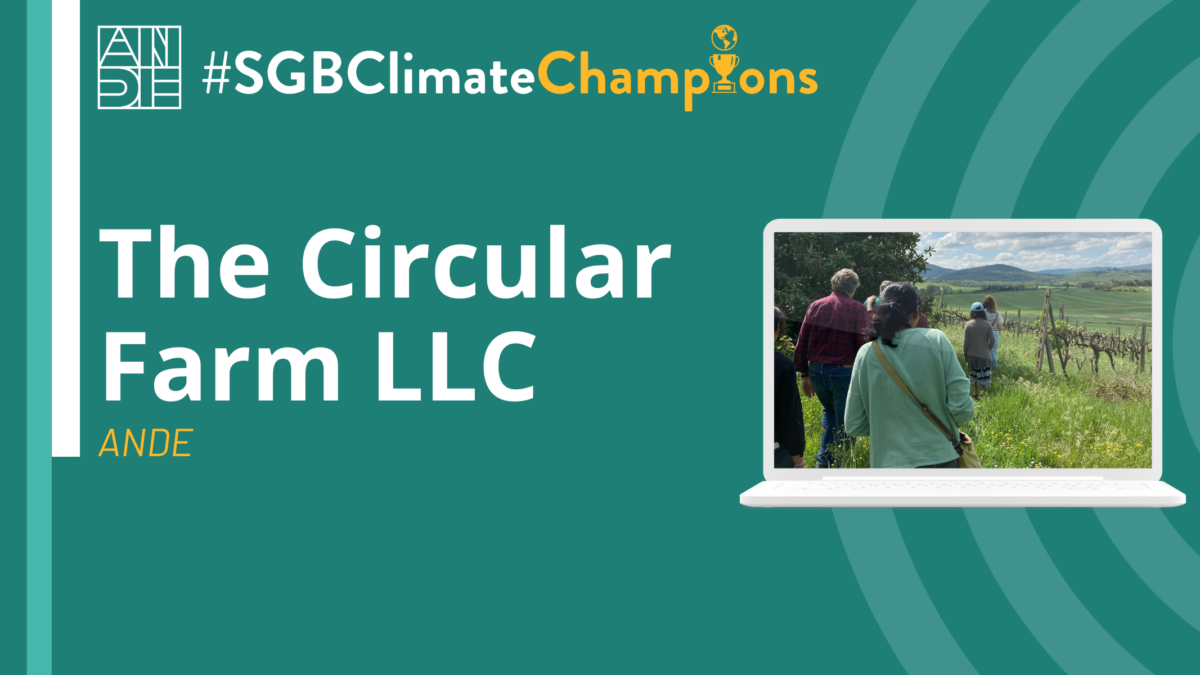
This blog post highlights The Circular Farm LLC Food System Climate Resilience Initiative which aims to steer actors in the agriculture food value chain towards lowering emissions in the production of food.
In order to find out more about their work, we have asked Circular Farm’s Founder –Gayathri Ilango, some questions:
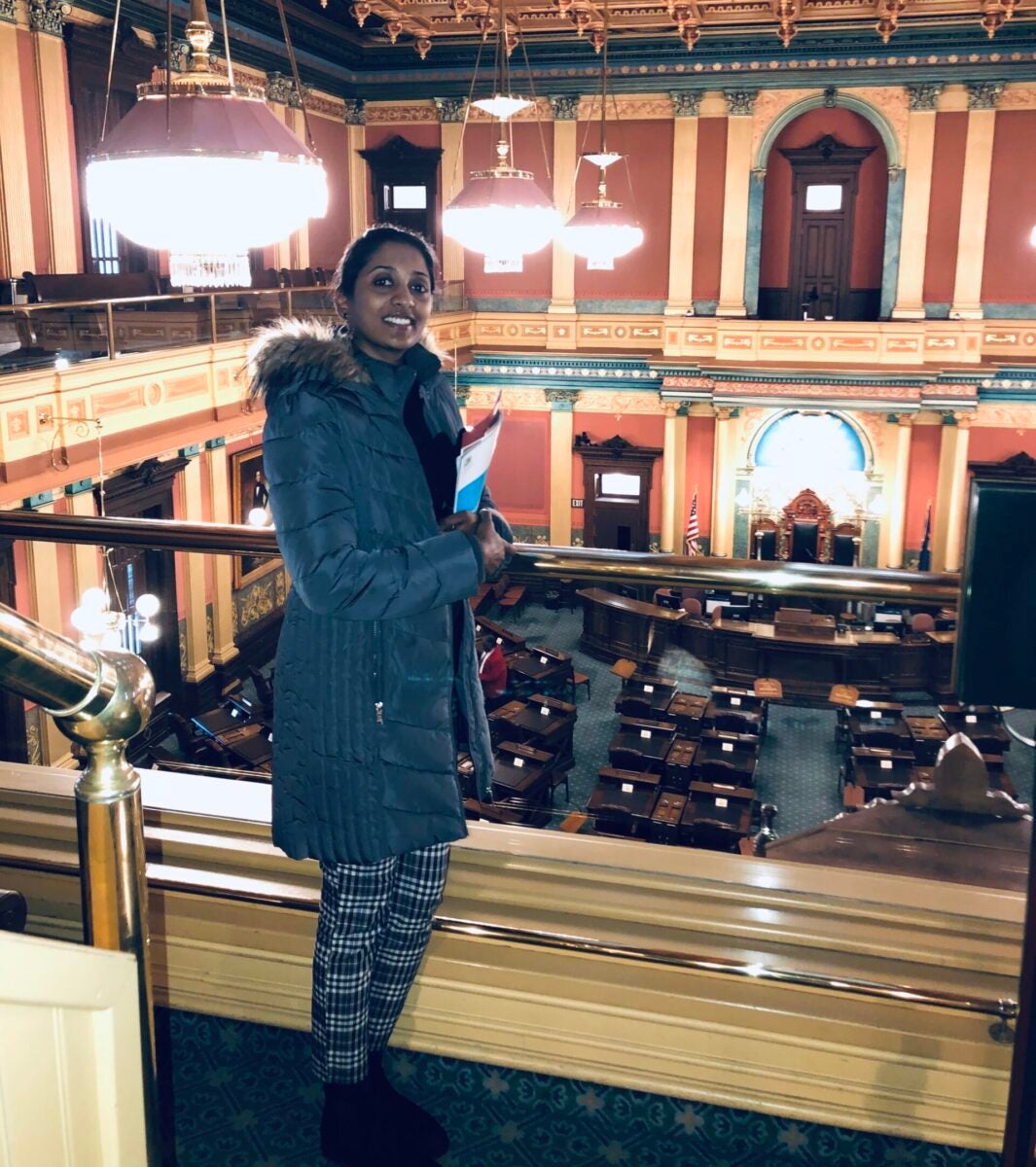
When we start taking small steps in the direction of addressing the physical and natural challenges of growing food, we believe that all great minds and working hands come together in achieving our goals. With that vision, I started The Circular Farm Company in the year 2021. My experience in implementing urban improvement projects to fundraising for various causes along with contributions in academia supported building the initiative of climate resilience in the food system. I work with different actors in the agriculture value chain to steer them towards lowering emissions in the production of food. I enjoy working on our spice farm in Cochin, gathering experiences in different farming methods through travels globally, and volunteering with organizations to achieve Sustainable Development Goals. I am currently preparing for my Masters in Sustainability at Harvard University and a cohort of Harvard Innovation Lab.
Gayathri Ilango | Founder and CEO | The Circular Farm LLC
What are your key goals and mission?
Pre- and post-production activities along the agri-food system generate up to one-third of all anthropogenic emissions globally. This emission requires a larger food system perspective to design mitigation strategies across the entire value chain. These designs should be a blend of traditional knowledge and modern technology with extensive funding to support all the actors involved in the production of food. The Circular Farm Company aims to reduce carbon emissions in food production. We devise solutions inclusive to every grower and food producer along with the partners which start with farms of any size to large eco-restoration models globally. We collaborate with growers, tech partners, and funders to promote sustainable practices amidst changing environmental and social conditions. Our objectives include sustainably increasing agricultural productivity and incomes, adapting and building resilience to climate change, and reducing or removing greenhouse gas emissions, where possible. We have our farm model in Cochin where we practice regenerative agriculture while incorporating global practices through field experiences.
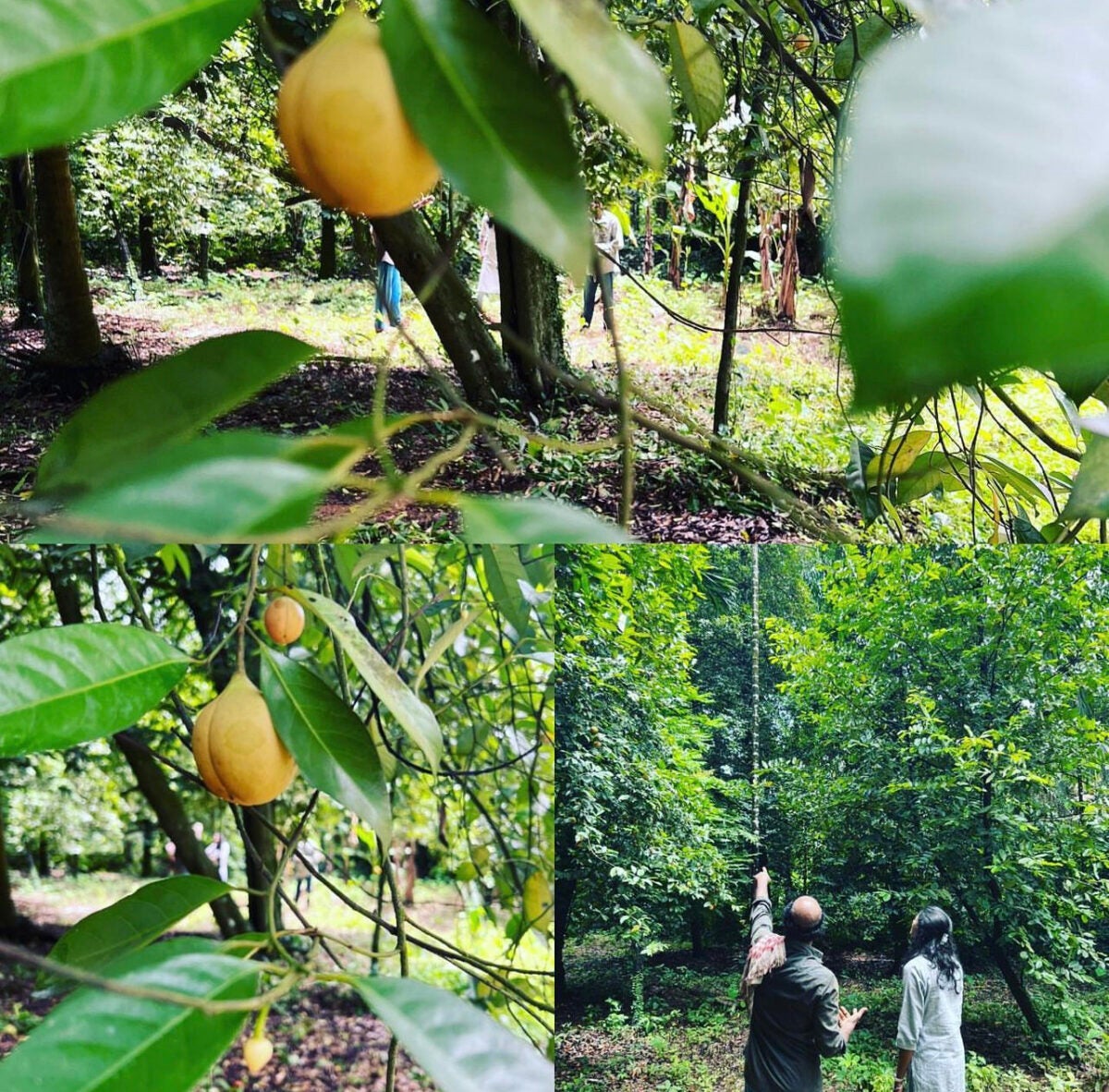
Why do ESOs and SGBs play an important role in combating climate change?
The number of Small and Growing Businesses (SGBs) are increasing globally every year. The size of the company can be determined by funds or employees and operations, but they are powerful, especially in influencing locally the solutions to the climate crisis. SGBs represent locally-driven solutions that must have studied local challenges and provide a huge economic benefit to the region. Climate change is one of the most pressing issues of our time and everyone needs to play their part in tackling it. In this goal of reducing GHG emissions by 2030, no stone should be left unturned which needs strong public-private partnerships along with community participation. The most vulnerable people to climate crises like indigenous groups, local communities along with the organizations that are in the forefront in climate actions like educational institutions and non profits should be included in the decision making and implementation activities. SGBs can play a very important role in tackling climate change if they are given the support they need. Even for large companies to reduce emissions, the support of SGBs is required.
What has been your biggest challenge and what did you learn from this experience?
Our journey began along with the challenges faced by small farms as we had faced a lot of issues with our family farm in India. We were aware that along with social challenges, we needed a solution that prioritized clean food, crop nutrients, soil health, and transparency as by then floods and poor soil quality was a frequent problem. The changes in both physical and manmade systems were affecting our farming practices and in turn our scope for revenue generation. These are a few challenges that all small farm holders face globally. When we say sustainable model, the most important part is having economic sustainability and environmental sustainability.
When we tried to adopt the practice of sustainable farming and felt the need to replicate this model among our community farmers, there was in general slow acceptance of this new system. The nature of practicing industrial agriculture has already occupied so much of our farming practices, a system change is humongous as farmers wanted an assured market linkage for their crop. We need investments and decentralization of technology to create an inclusivity in achieving a sustainable food system. Every new change comes with challenges and system failures. The major trade-off happens when questions like who will pay more and who will receive more in these conversations. Identifying markets and funding the initiation cost of production are the challenging parts for transition to sustainable agriculture. These are not the problems that individual customers can solve. We realized that a partnership on a public-private model is required for farms to transition to organic, regenerative or sustainable methods of production in order to transition towards lowering greenhouse gas emissions in the production of food.
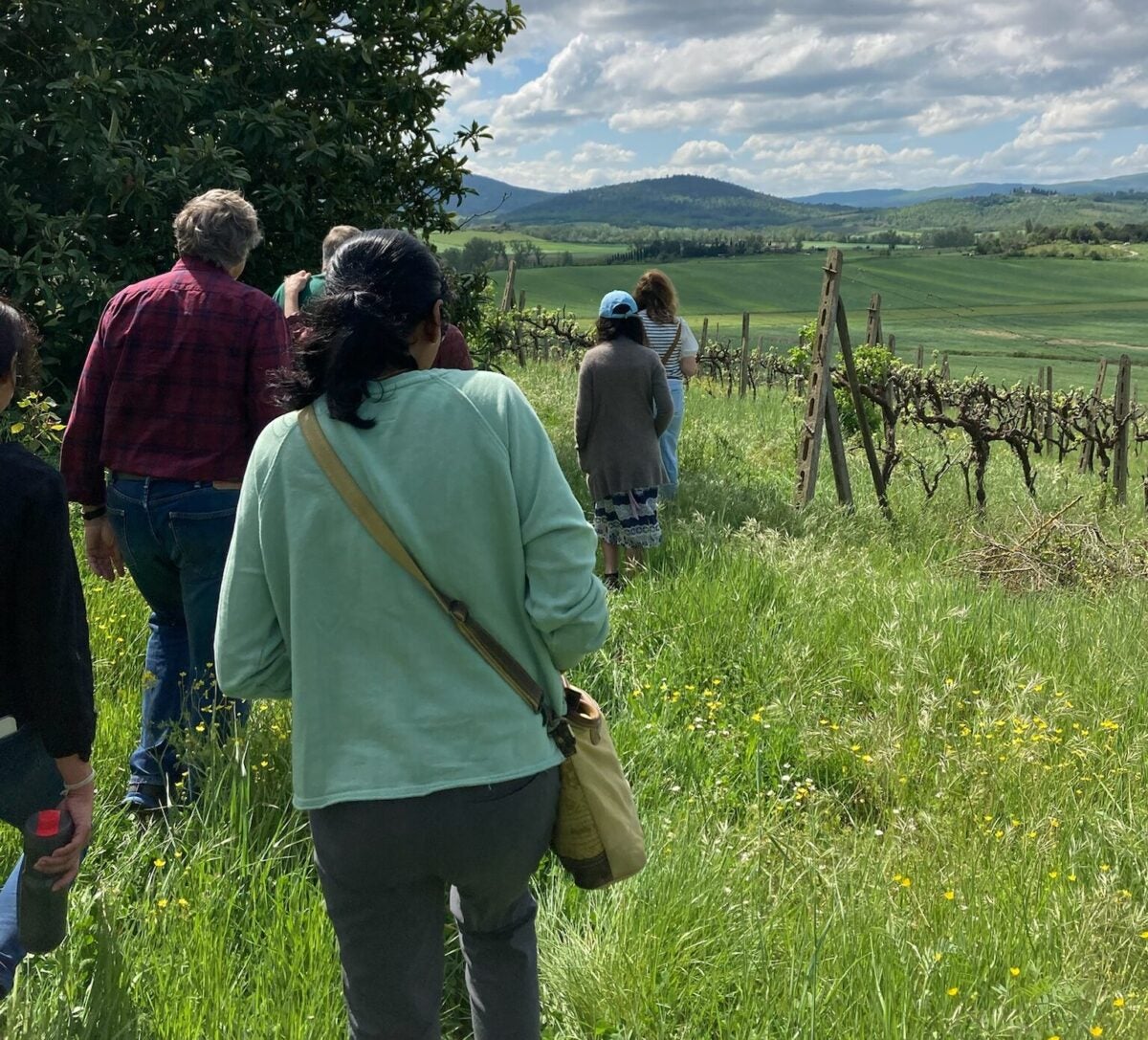
What was most successful in overcoming that challenge that might be useful for others going through similar challenges?
I definitely see there’s a growing demand for ethically and sustainably sourced food. When these methods are incorporated in growing practices, our future towards lowering carbon emissions from food productions can be achieved. Global multinationals in farming and food business are taking a lead on this front where they want to support inclusive community models in food production. Thanks to the certification process, this has enabled many food producers to grow with a faith that this certification would fetch them good income. Technology is strengthening climate smart food production, sustainable farming and data management. This is one field that has seen huge growth in the last few years.
When we talk about this nexus of funding, policies and technology coming together, the path for partnership becomes important. We were able to establish this among our food producers who are now motivated to choose the path of climate smart agriculture. Especially as the onus of reducing scope 3 emissions falls on the food producers, there is definitely a positive change in the food system. When I attended the International Spice Conference organized by the Spice Association of India, there were discussions on how protection of biodiversity and climate smart practices should be incorporated in growing spices. The spices from India have a huge market globally and are most vulnerable to climate change. I saw how different actors from the agri value chain came together to find a practice that can address these challenges. That is the strength of collaboration and partnership.
What resources would you recommend for anyone interested in climate work?
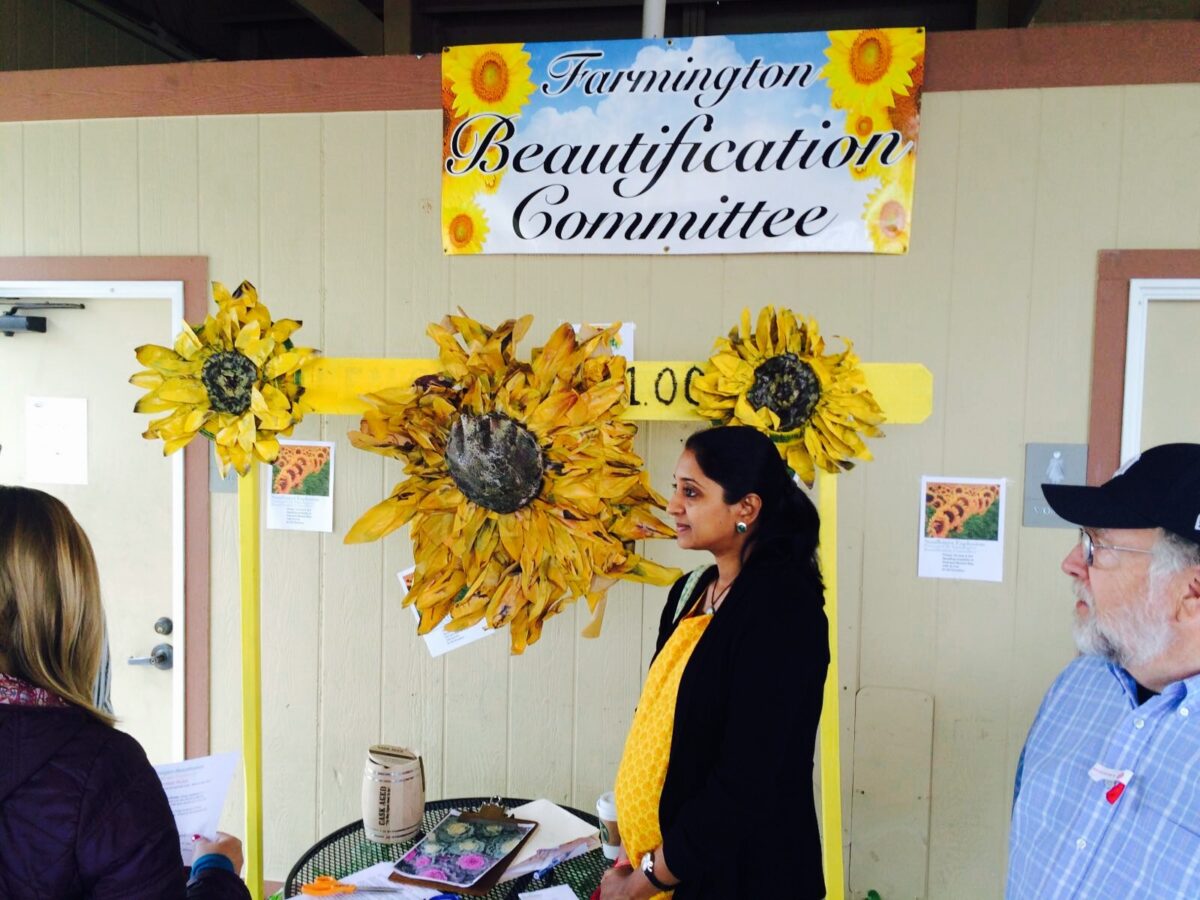
I remember reading this quote – “Be aware of everything around you because you are receiving the answers to your questions at every moment of the day.” To be aware of the global challenges in the climate crisis and to have better communication, networking, and collaboration it is important to build strong platforms. Being a part of local community organizations like citizen participation networks and global organizations like ANDE can give an overview of the challenges and a learning how mitigation is carried out in similar situations which can be adopted, replicated and scaled. We need to be open to collaboration as we have a daunting task before us and the actions are immediate. Sharing knowledge and open-source technology would give scope for the decentralization of solutions. Training, tools, and technical capacity-building programs can provide information and support implementation. Some of the organizations that I am a member of have enabled me to learn and identify people from similar interests and network that is supporting my work greatly. To name a few are Harvard Extension School for Environmental Club, Harvard iLab, Food Tank, The World Bank Open Learning Campus, SME Climate Hub and Worldwide Opportunities on Organic Farms, USA (WWOOF USA). I engage with conversation from farm owners and food producers globally which gives perspectives on the challenges and solutions of growing food. I attend events hosted by universities and local agriculture networks and make sure I visit a regenerative farm everytime I travel to any new place.
